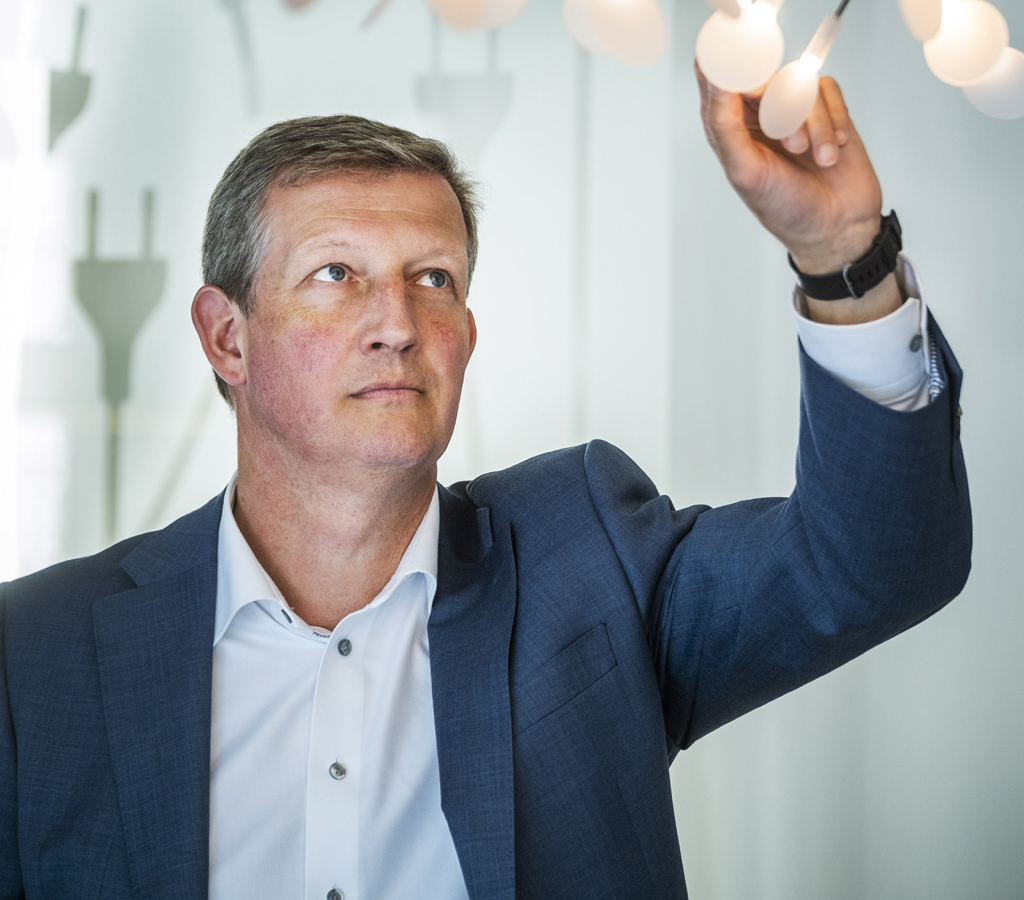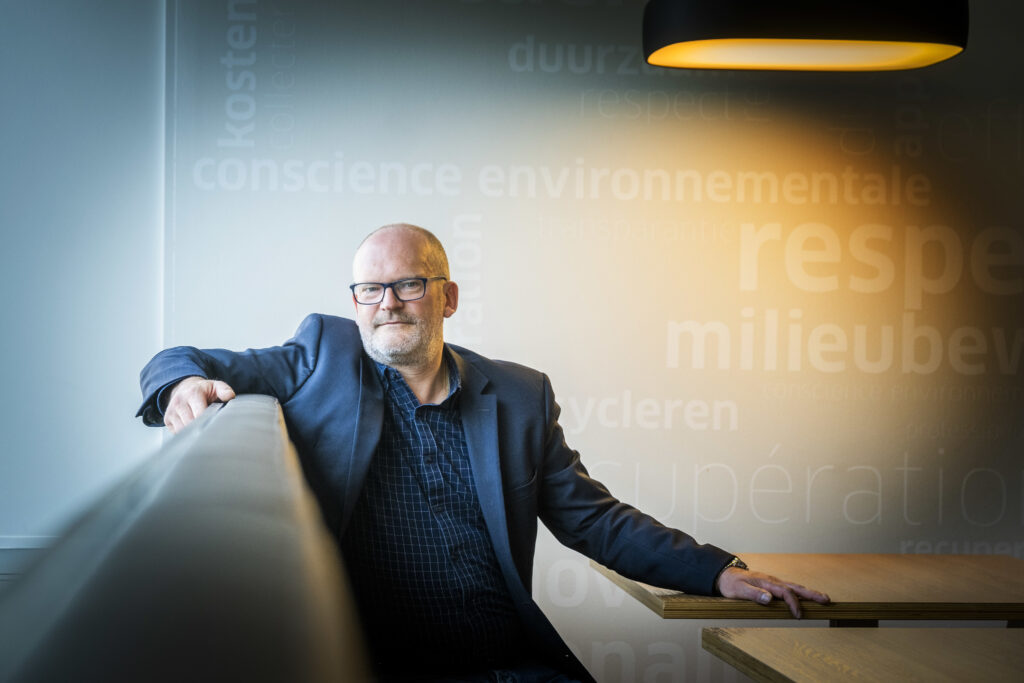The common thread in 2021 was working on strong partnerships
We still hadn’t returned to normal in 2021. The coronavirus pandemic had a few more waves in store for us, and historically severe floods occurred that summer. CEO Eric Dewaet and Chairman Bruno Vermoesen look back on a year full of unexpected turns, and talk about plans for the future.
Eric Dewaet: “I’m very happy with what we achieved in the past year. Although the coronavirus crisis continued to cause complications, we once again achieved record collection results and recovered our recycling rates from their lockdown dip. This is as much to the credit of our staff as it is to our broadened network of partners. For example, we saw an increase in reporting using the BeWeee platform for organisations not affiliated with us. There were also several successful communication campaigns, and we undertook preparations for major changes.”
Bruno Vermoesen: “One of the biggest changes is the new organisational structure. Today, Recupel is a collection of eight non-profit organisations: Recupel as an implementing organisation and seven subsectors. This complex structure will be reduced to a single non-profit organisation in 2023. The divisions will reflect the different product categories, rather than the sectors. This is a complicated process that we worked hard on in 2021, with one of the greatest advantages being that the new structure will allow us to give people who are not on the board of directors a say. This makes it possible for us to hear more diverse voices and new ideas, so we can better adapt our operations to them.”
Dewaet: “That’s what I see as the common thread through 2021: Working on strong partnerships. Among other things, we concluded a new take-back obligation covenant for the next eight years with OVAM. In this, we have built on the previous agreement with new commitments. For example, OVAM will provide an electrical tracker to check where appliances are currently disappearing from the reuse cycle. It is foreseen that this agreement will generate an additional 1,500 tonnes of collection. We are committed to collecting an average of an additional 3,000 tonnes per year in these eight years. This ambition is necessary to keep up with market growth.”

Eric Dewaet: “With a series of great campaigns, we can now present Recupel more as a brand with its own face. Just think of the old appliances in the Club Brugge stadium.”
One of the big topics last year was the introduction of a new device list. What does this mean?
Dewaet: “As of this year, producers and importers of electrical devices must report according to a new classification. We will go from ten categories to six, in order to comply with the European Waste Electrical and Electronic Equipment (WEEE) Directive. We prepared for the introduction of this new device list internally in 2020. Over the past year, we communicated with our members about the change and its consequences. We’ve also set up a help desk and additional tools to provide them with good guidance.”
Vermoesen: “One such tool is our new customer management system. We put it into operation in 2021. We’re essentially a coordinating organisation, with our task being to strengthen ties with our partners and jointly develop solutions with the recycling sector, different governments, producers and other parties. So active, clear, flexible and frequent communication is of some importance, both with our members and other stakeholders.”
Bruno Vermoesen: “Our new organisational structure allows us to give people who are not on our board of directors a say.”

Recupel also launched some remarkable campaigns for the general public during the past year.
Dewaet: “In 2020, we made the decision to present Recupel more as a brand with its own face, and we made a concrete start on this last year with some great campaigns. Together with Club Brugge, we filled their stadium with old electrical devices, and together with BEBAT we launched a campaign to reach out to non-native new arrivals. The collaboration with Jeroom and Philippe Geluck on lamps and light fixtures was also a real hit. We made an appeal in Wallonia via the Nostalgie radio station to collect usable devices for the victims of the flood. In Flanders, we called in the help of Gert Verhulst and James Cooke, who spread the message during the De Cooke & Verhulst Show.”
Vermoesen: “We also commissioned a series of videos from our partners who process old devices for reuse or recycling. For example, Out of Use restores old laptops and then provides them to people in need. Through this, we focus attention on abstract concepts, such as recycling, reuse and the circular economy. It’s also an exciting sector with a lot going on; we even completed an artificial intelligence project in 2021. This technology is now widely used by the social enterprise companies that provide us with random samples of collected devices. The potential applications go a lot further, and we’re already working on the next generation. I refer those who want to know more to our next annual report.”